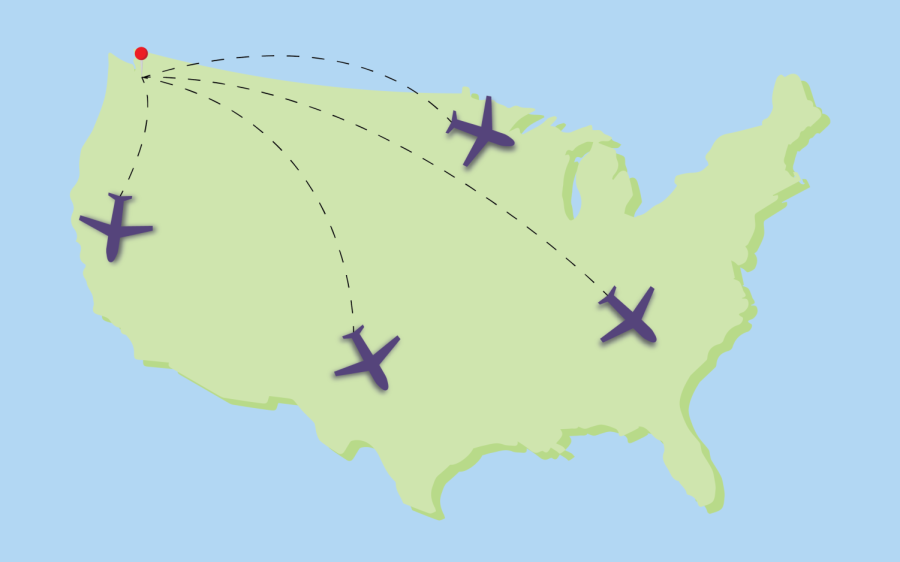Redhawk Holiday Travel Challenges: Expensive Tickets and COVID-19 Concerns
Winter break is nearing and most students are preparing to travel back home. For many, the festive season is a time to get together with family and the month of December also holds significant importance for other religious traditions. Unfortunately, not everyone is able to head home for the break, especially international students.
Vanesa Wie, a third year marketing major at Seattle U, works at the International Student Center and is from Indonesia herself. Being an international student, she has experienced the hardships of traveling home firsthand.
“It is important for international students to know their schedule really well so they can buy their tickets,” Wie said. “I ordered my ticket six months in advance.”
Some international students plan to visit home once a year, while others visit more often; it depends on the family and how much money they are able to spend.
Wie feels that Seattle U does not offer many resources to aid travel, but individual faculty members were often helpful for her. When a friend of Wie’s needed to leave on short notice for a sibling’s wedding, their professor worked with them to attend classes online and catch up with missed learning.
“The SU community is very supportive to international students because they know what we’ve been through,” Wie said.
Kevin Ruiz, a second year communications major, is from the Seattle area. He does not believe that Seattle U is doing the best to support students, especially his international friends.
“A lot of my friends struggle to find plane tickets to travel out of Washington,” Ruiz said.
COVID-19 is still a concern following students when traveling. Ruiz is amongst those who will always be anxious about the illness and mindful of situations where it may be necessary to mask up.
“[COVID-19] hasn’t ended and it probably won’t end anytime soon, even with vaccines and all that, I think that it’s still something that’s going to be out there,” Ruiz said.
Seattle U’s normal schedule, where classes resume between Thanksgiving and Christmas, has returned this year and created mixed feelings. Ruiz likes being on campus for finals to have the helpful support from students and professors.
“I am an in-person learner and I prefer to be in the classroom and actively learning with the teacher,” Ruiz said.
Adrianna Martinez, a second-year computer science major at Seattle U, disagreed with Ruiz, preferring a longer winter break. She cited COVID-19 concerns as one reason she would prefer to return to campus less frequently.
“My family was highly impacted by COVID during 2020, so naturally, COVID has always been a concern in the learning environment,” Martinez said.
Approximately three percent of Americans are immunocompromised, which causes additional holiday concerns for many families. Having to travel twice for Thanksgiving and Christmas within three weeks increases the chances of catching COVID, ending in spending the holidays separated from friends and family.
In agreement with Martinez, Wie prefers having a joined break for Thanksgiving and Christmas. With this schedule, travel burdens on international students are lightened.
“[The joined break] really benefits our mental health because it keeps us from feeling homesick,” Wie said.
Homesickness is one of the main side effects that Wie highlighted for international students due to plane tickets being as expensive as they are and students’ homes being far away.
“It makes me homesick because I can only go back home once a year,” Wie explained, while stating that it is going to take 30 hours for her to get home.
For many students, spending holidays with family and friends is a priority, but when one is out of the country, or even out of state, there are several challenges to face. Pricey tickets will always be something that gets in students’ way, as well as class schedules. Despite these hurdles, students are still finding ways to spend time with friends or whatever family they can to bring the holiday spirit.


